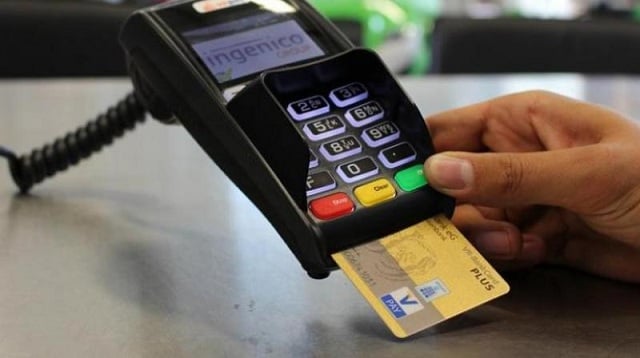Hong Kong shopping districts are well known for their fierce competition. Now, a new battleground is forming as digital payments firms fight for retailers and shoppers.Chinese tech giants like Tencent and Alibaba are bringing their payment platforms to a city that has long thrived on cash and credit cards, putting them into competition with the likes of Google, Apple and Samsung, as well as local players like HSBC.“Hong Kong is probably a little behind other places when it comes to digital payments, so we are seeing a rush to establish a first mover advantage,” said Fergus Gordon, who leads Accenture’s Asia-Pacific banking practice.
The city has become an important testing ground for Tencent’s WeChat Pay, and Alibaba’s Alipay, dominant rivals in mainland China, as they look to establish themselves overseas.AlipayHK, a joint venture between Ant Financial , Alibaba’s payments arm, and the Hong Kong conglomerate CK Hutchison, says the number of its users have jumped 50 percent to 1.5 million since March.WeChat Pay does not disclose its user numbers in Hong Kong.
Visa says that as of last April, one in 10 Visa payments in Hong Kong were made using Apple Pay, Samsung Pay or Google Pay, doubling from a year earlier. HSBC said in July that it reached one million users for its peer-to-peer payments app Pay Me.Hong Kong has been slow to embrace mobile payments partly because of the ubiquity of Octopus, a once ground-breaking stored-value card that is accepted by 22,000 businesses like convenience stores and small restaurants, and is widely used on public transport.Despite the growth of mobile payments, current spending habits will be hard to change.A Hong Kong Productivity Council survey published in July found that the most widely used mobile payment methods were Alipay and WeChat Pay, but they were used by just 22 percent and 19 percent of respondents respectively.
Must Read: Amazon considering plunge into UK financial services market….
Lack of familiarity and worries about data leakage were the most common reasons given for not adopting the new mobile payment systems.Octopus cards were first launched in 1997. Twenty years later, there were 34.4 million cards in circulation – almost 5 per Hong Kong resident, according to the company.But even Octopus is feeling the heat from competition. Net profit fell by one-third in 2017 to HK$272 million ($34.66 million).However, Sunny Cheung, Octopus’ chief executive, told Reuters that the numbers were a one off, since the company had been spending heavily, particularly on technology and cybersecurity.
He added that the company still had an edge over the newcomers, particularly with small businesses long used to Octopus payments. “Acceptance is key, especially in the ‘mom and pop’ shops.”An AlipayHK spokeswoman said the company was trying to attract users by offering special discounts.“At the same time, we are seeking cooperation with various merchants to increase the penetration of AlipayHK to change consumers’ habits little by little,” she said.Merchant cooperation is hard to get right though, due to the differing tastes of consumers.Edward Ho, who owns a shop selling luxury bags in Hong Kong’s teeming Causeway Bay shopping district, signed up for Alipay last year but gave up on it after customers showed little interest.
However, James Lam, who runs the watch shop next door, installed Alipay after one visitor from mainland China would only buy a timepiece using Alipay or WeChat Pay. Lam now encourages local customers to use the digital wallets too.As well as consumer demand, other new initiatives are attracting market interest.This month, MTR Corp is inviting tenders to create a new QR code-based payments system for traveling on the city’s subway system. In September, the central bank plans to roll out a faster payment system that will allow for real-time processing.Visa has said it will bid for the MTR tender, and market insiders expect Alipay and WeChat Pay to also participate. Cheung declined to comment on Octopus’ plans for the tender. Tencent did not respond to a request for comment, and AlipayHK said that e-payment on public transport is something that the company “is actively working on”.
While the mobile payments companies will be looking to supplant Octopus’ dominant position in the public transport system, ultimately their aim, analysts say, will be to create a wider network of services, which could range from food delivery and ride hailing, to financial services and lending. “It is difficult to make money from payments, but they can be the glue that ties together an ecosystem of services,” said James Lloyd, Asia Pacific fintech lead at EY. “The company that succeeds in Hong Kong will be the one that learns this lesson.”




